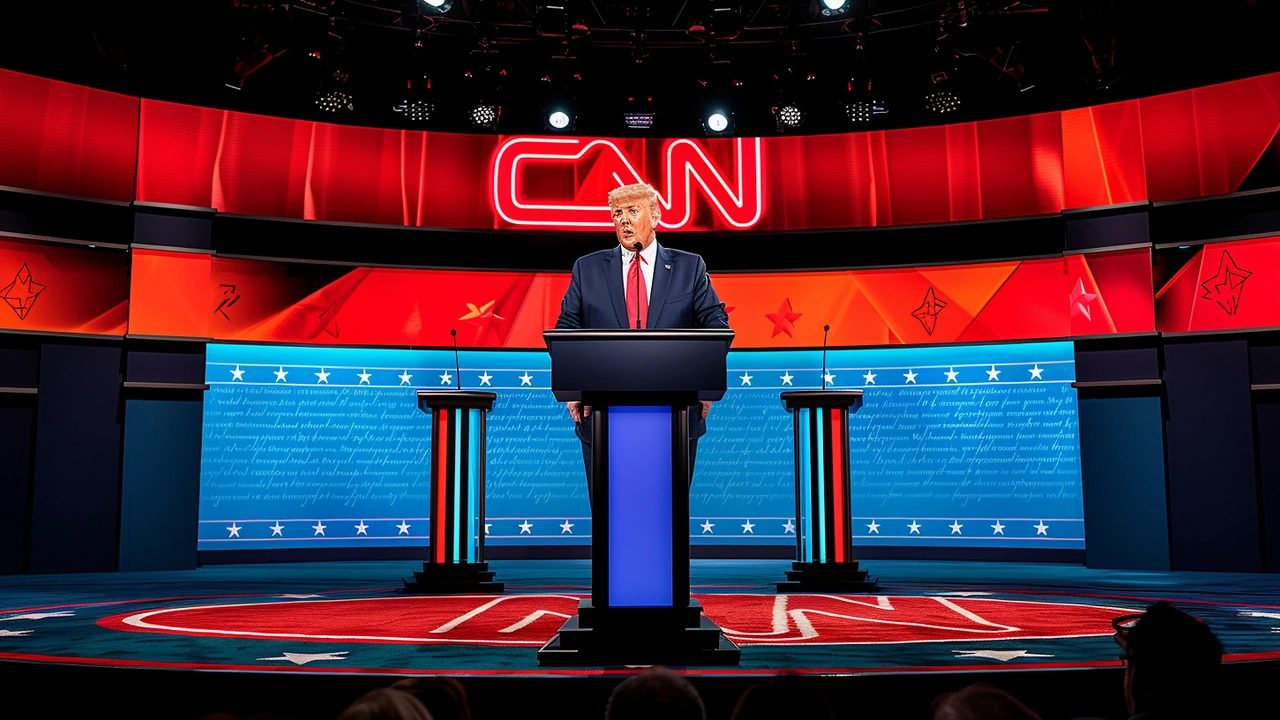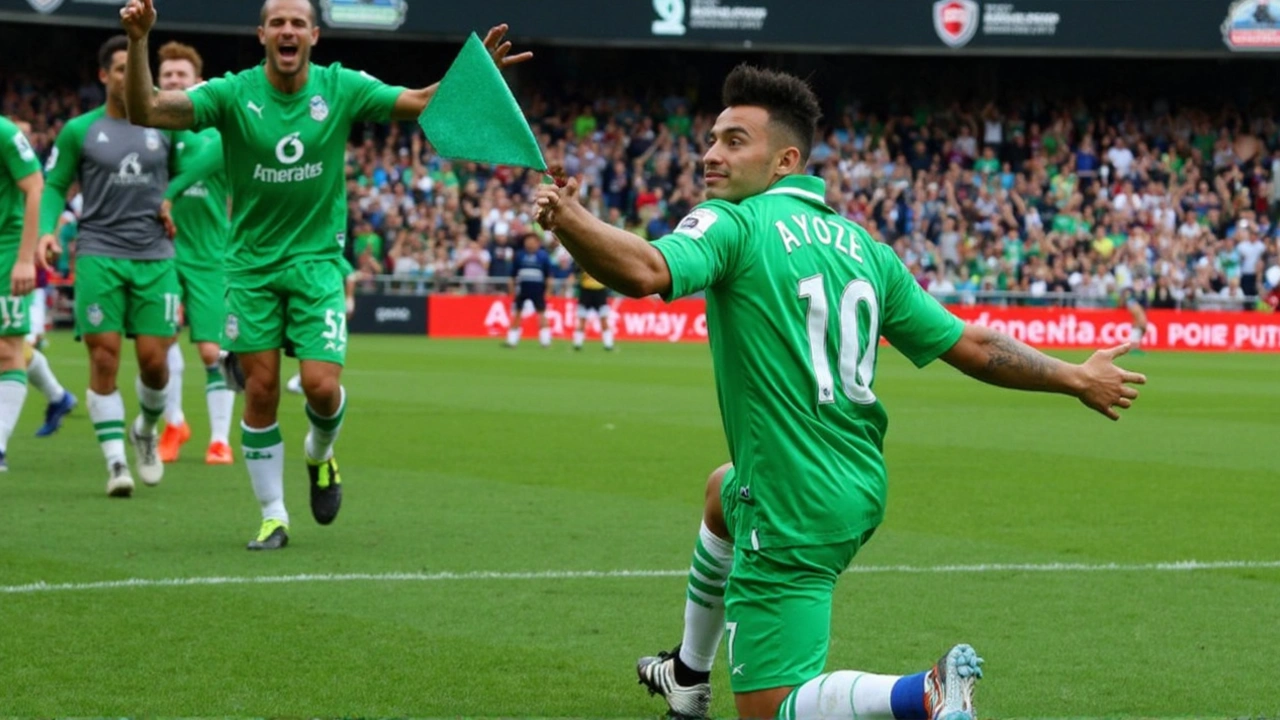The Stage is Set for a Heated Debate
In what can only be described as a battle of titans, the recent US presidential debate between the 81-year-old Democratic incumbent Joe Biden and his 78-year-old Republican challenger Donald Trump was nothing short of historic. The age of the two candidates alone made this event unprecedented, but what truly captured the nation was the palpable animosity between them, evident from their refusal to even exchange a traditional handshake. The debate ignited discussions on a multitude of issues, with both leaders sparing no effort to attack each other's records and policies, making for a night of high drama and intense scrutiny.
Biden’s Economic Criticism
With a noticeably hoarse voice, Biden took to the stage with a clear agenda: to hold Trump accountable for the state of the economy he inherited. Biden argued that the economic difficulties faced by Americans today were a direct result of Trump's policies during his term. He emphasized that the Republican's approach had left a lasting scar on the nation, one that his administration has been working tirelessly to heal. Biden's narrative leaned heavily on the notion that his leadership was instrumental in steering the country towards economic recovery post-pandemic. He spoke passionately about the importance of investing in infrastructure, health care, and education to create a robust and resilient economy for the future.
Trump’s Rebuttal and COVID-19 Response
On the other hand, Trump was quick to counter Biden's criticism by pointing to the global COVID-19 pandemic, which he claimed had been a significant hindrance to his re-election efforts. According to Trump, the pandemic was an unprecedented crisis that disrupted economies worldwide, making his administration's economic challenges unavoidable. He criticized Biden's handling of the pandemic response, suggesting that it failed to address the foundational economic issues and only added to the nation's debt. Trump also claimed that pre-pandemic, his policies had led to a thriving economy, and he expressed confidence that his economic strategies were what the country needed to propel forward.
The Polls and Public Perception
Despite the heated arguments, current polls indicate a divided public opinion. Some favor Trump's economic policies, citing his tax cuts and deregulation efforts as beneficial for business growth and employment. Conversely, Biden supporters highlight the recovery measures implemented during his tenure, arguing that his approach has been more inclusive and aimed at long-term stability rather than short-term gains. This division is stark and sets the stage for a closely watched and contentious election battle.
Biden’s Verbal Missteps
During the debate, Biden faced a challenging moment when he struggled to articulate his thoughts on the national debt. He confused 'billionaires' with 'trillionaires,' leading to some lapses in his speech. These gaffes did not go unnoticed by Trump, who seized the opportunity to mock Biden and underscore perceived weaknesses. Trump suggested that Biden's age and health were factors contributing to these slip-ups, a narrative he has pushed throughout the campaign to portray Biden as unfit for presidency.
Trump's Aggressive Tactics
Trump did not shy away from aggression, emphasizing moments of Biden's confusion and using them as ammunition to question his opponent's capability. He painted a picture of a faltering leader struggling to maintain coherence. This tactic has been a hallmark of Trump's campaign strategy, designed to sow doubt in voter minds about Biden's competence. Nonetheless, it also raised questions about the decency and decorum expected in such high-stakes debates.
Contrasting Economic Policies
Throughout the debate, the stark contrast between the two candidates' economic visions was evident. Biden emphasized the importance of social safety nets, environmental sustainability, and equitable growth, seeking to address the systemic issues exacerbated by the pandemic. He highlighted his administration's initiatives to support small businesses, expand healthcare access, and invest in green energy. Trump's focus, meanwhile, was on deregulation, tax cuts, and boosting industrial growth. He presented himself as pro-business and pro-jobs, arguing that less government intervention would lead to greater economic prosperity.
The National Debt Dilemma
The national debt remained a contentious issue, with both candidates offering starkly different approaches. Biden acknowledged the need to address the ballooning debt but proposed doing so through strategic investments that would generate long-term returns. He suggested that taxing the wealthiest Americans and corporations could help fund necessary public services without burdening the middle class. Trump, however, criticized this approach, arguing that higher taxes would stifle economic growth and drive businesses overseas. He proposed cutting down government spending and implementing more business-friendly policies as a solution.
Public Reaction and Future Implications
The debate has left the public with much to ponder. The clear animosity between the two candidates, evident from their sharp exchanges, speaks volumes about the current state of US politics. It also sets the tone for the upcoming election, where economic policies and responses to the pandemic will likely dominate discussions. Voters are now tasked with considering which leader's vision aligns best with their expectations for the country's future direction.
The historic nature of this debate, given the candidates' ages, has further intensified the spotlight on the issues at hand. As Americans prepare to make their voices heard at the polls, they do so with a clear understanding that the choices before them could define the nation's trajectory for years to come. Whether it's Biden's call for inclusive recovery or Trump's promise of economic revival that resonates more, the unfolding political battle is sure to be one for the history books.





